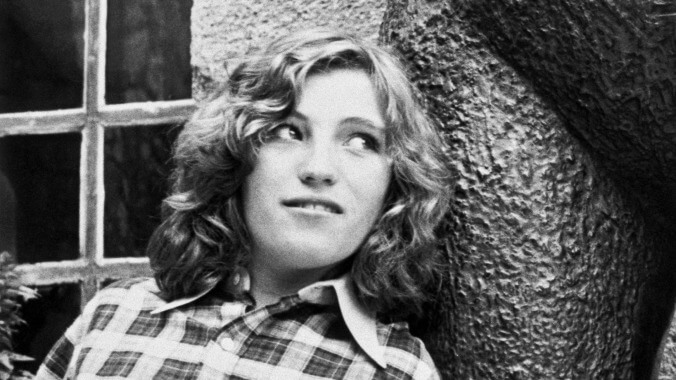R.I.P. Days Of Heaven's Linda Manz

Linda Manz has died. Although she only acted in a dozen or so projects throughout the entirety of her career, Manz left an indelible impression on the works she passed through—most notably with her debut role in Terrence Malick’s Days Of Heaven. Per THR, Manz died this week of complications from lung cancer and pneumonia. She was 58.
Manz was only 15 when she met Malick, who cast her as the sister of Richard Gere’s hard-scrabble laborer, Bill, in his 1978 classic. Although her part in the film was initially fairly small, Malick eventually brought Manz back to record the film’s voiceovers, which added structure and context to a movie the director famously struggled to assemble. Enigmatic and sometimes rambling, Manz’s improvised monologues give Days Of Heaven its throughline, its humor, and much of its insight into the motivations that underpin its story of haves and have-nots.
Following her heralded performance in Malick’s movie, Manz continued to work on the outer edges of ’70s and ’80s film. That included a small but memorable turn in Philip Kaufman’s The Wanderers, and a far more prominent role in Dennis Hopper’s Out Of The Blue—the only starring role of her career. As punk/Elvis enthusiast Cebe, Manz pushed herself—or was pushed by Hopper, whose film-making style on the movie was anarchic, to say the least—to new and more extreme heights. And yet one of her most affecting scenes in the entire film is a far simpler and less demented one than the movie’s notorious climax: A simple few shots of Cebe playing drums on stage with punk band Pointed Sticks; for a moment, just a happy kid.
“I think I was Cebe,” Manz said in a 2011 Village Voice interview, timed to one of the periodic revivals of Hopper’s cult film. But that same interview sees her express only the vaguest interest in why, shortly after Blue, her career seemingly evaporated, with only a handful of credits to follow. Certainly, she didn’t seem to miss it much; that same interview sees her far more excited to swap recipes and gab about grandkids than to recount her time as an incarnation of perfected punk nihilism. (She did return to acting a couple of times in the 1990s, though, most prominently for Harmony Korine in Gummo.) Manz seems to have let acting go with an ease and comfort rarely seen in the profession; she drifted into the industry as a child, contributed key performances to some of the most important cult films of a generation, and then drifted back out, a job apparently, happily, done. She’s survived by her husband, Michael Guthrie. Guthrie launched a fundraiser yesterday to help raise funds for his wife’s funeral services.